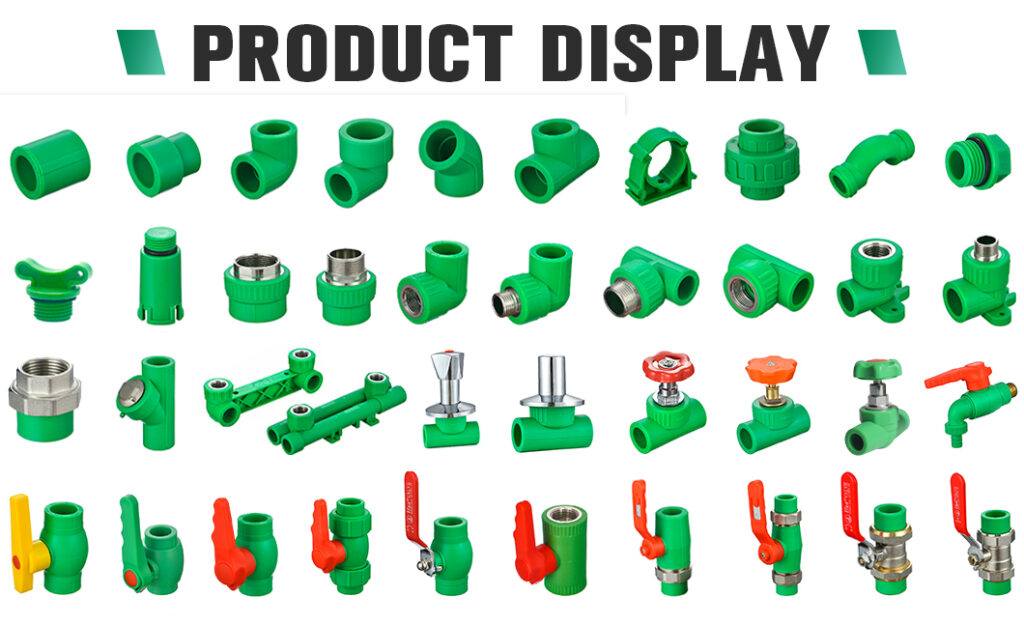PPR Pipe Fittings: Revolutionizing Modern Piping Systems
Polypropylene Random Copolymer, or PPR, has gained significant recognition in modern piping systems for its versatility, durability, and environmental-friendliness. PPR pipe fittings have become an integral part of various plumbing applications. In this article, we will explore the features and applications of PPR pipe fittings and how they are revolutionizing the world of modern piping.IFAN factory 30+ years manufacture experience support color/size customization support free sample.Welcome to consult for catalog and free samples.This is our FacebookWebsite: www.facebook.com.
1. Residential Plumbing:
PPR pipe fittings are widely used in residential plumbing systems. Their ease of installation and resistance to corrosion make them an ideal choice for delivering clean, safe water throughout homes. PPR is especially valuable in areas with aggressive water quality.
2. Commercial Buildings:
Commercial structures such as office complexes, malls, and hotels require robust plumbing systems. PPR fittings ensure that these buildings have a reliable water supply and efficient wastewater management. These fittings are known for their leak-free connections, a crucial feature in commercial settings.
3. Industrial Applications:
In the industrial sector, PPR pipe fittings find use in a multitude of applications. They are suitable for transporting various fluids, including chemicals, acids, and industrial wastewater. Their resistance to chemical corrosion and high temperatures makes them invaluable in industrial environments.
4. Heating Systems:
PPR is used in hydronic heating systems, where hot water is circulated through pipes to provide heating. PPR’s heat resistance and durability ensure efficient heating distribution in buildings.

5. Agriculture and Irrigation:
In agriculture, PPR fittings are used in irrigation systems, ensuring that crops receive the water they need efficiently. PPR’s resistance to environmental factors and easy installation make it a preferred choice in the agricultural sector.
6. Hospitals and Laboratories:
Healthcare facilities and laboratories have strict plumbing requirements. PPR pipe fittings are favored for their non-toxic properties, ensuring the quality of water supply and safe disposal of waste in these sensitive environments.
7. Renewable Energy Systems:
In renewable energy systems such as solar water heaters, PPR fittings are used for their excellent heat retention and resistance to corrosion. These properties ensure the efficiency and longevity of renewable energy applications.
Advantages of PPR Pipe Fittings:
1. Corrosion Resistance:
PPR fittings are highly resistant to corrosion, making them ideal for applications involving aggressive water or chemicals.
2. Easy Installation:
Their lightweight nature and simple installation process reduce labor costs and save time, making them a cost-effective choice.
3. Durability:
PPR pipe fittings have a long service life, reducing maintenance and replacement costs.
4. Thermal Insulation:
PPR’s excellent thermal insulation properties help maintain fluid temperature and conserve energy.
5. Eco-Friendly:
PPR is an environmentally friendly material as it can be recycled, reducing its environmental impact.
Conclusion:
PPR pipe fittings have played a transformative role in modern piping systems. Their versatility and durability have made them an essential component in residential, commercial, industrial, and agricultural applications. Their corrosion resistance, ease of installation, and longevity make them a cost-effective choice. As technology and environmental concerns continue to shape the future of plumbing, PPR pipe fittings will remain at the forefront, ensuring efficient and reliable water distribution and wastewater management across diverse sectors.

